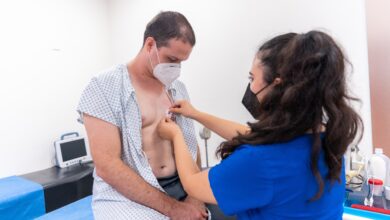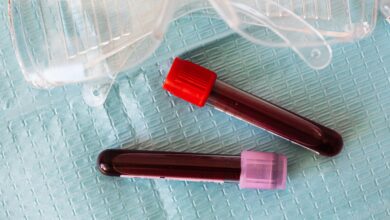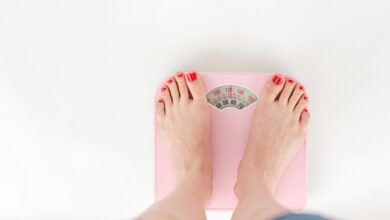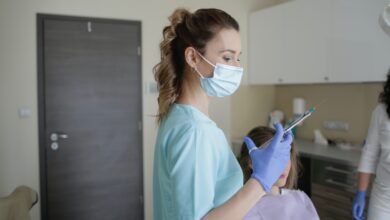
How to Prevent Diarrhea
infectious diarrhea
- washing your hands frequently with soap and water or with an alcohol-based gel is the surest way to prevent contagion (especially before eating, during food preparation and in the bathroom). bath) ;
- do not drink water from a source whose purity is unknown (boil the water for at least 1 minute or use an appropriate water filter);
- always keep perishable food in the refrigerator;
- avoid buffets where food stays at room temperature for a long time;
- monitor and respect the expiry date of food;
- isolate yourself or your child during the illness, since the virus is very contagious;
- for people at risk, consume preferably pasteurized dairy products. Pasteurization kills bacteria with heat.
Traveler’s diarrhea
- drink water, soft drinks or beer straight from the bottle. Drink tea and coffee prepared with boiled water;
- avoid ice cubes;
- sterilize water by boiling it for at least 5 minutes or by using filters or water purifiers;
- brush your teeth with bottled water;
- only eat fruit that you can peel yourself;
- avoid salads, raw or undercooked meat and dairy products.
Diarrhea associated with taking antibiotics
- take antibiotics only if absolutely necessary;
- scrupulously respect the indications given by the doctor as to the duration and dose of antibiotics.
Measures to prevent complications from diarrhea
Be sure to rehydrate well (see below).
In general, acute diarrhea resolves after 1 or 2 days with rest and some changes in diet. During this time, the diet should include only fluids to prevent dehydration, followed by a gradual intake of certain foods.
In the case of diarrhea associated with taking antibiotics, the symptoms usually stop within a few days of stopping the antibiotic therapy.
What are the medical treatments that can be put in place?
Prevent dehydration
Drink at least 1 to 2 liters of water, vegetable or lean meat broths, rice or barley water, clear teas or caffeine-free sodas each day.
Avoid alcohol and drinks that contain caffeine, which have the effect of increasing the loss of water and mineral salts.
Also, avoid drinking several glasses of soft drinks, since their high sugar content can cause diarrhea.
Adults with severe diarrhea, such as traveler’s diarrhea sometimes occurs, should drink rehydration solution. They can get it from a pharmacy (Gastrolyte®) or prepare one themselves (see recipes below).
Some older people, just like young children, may have more difficulty feeling their thirst or reporting it to those around them. The help of a loved one is then very important.
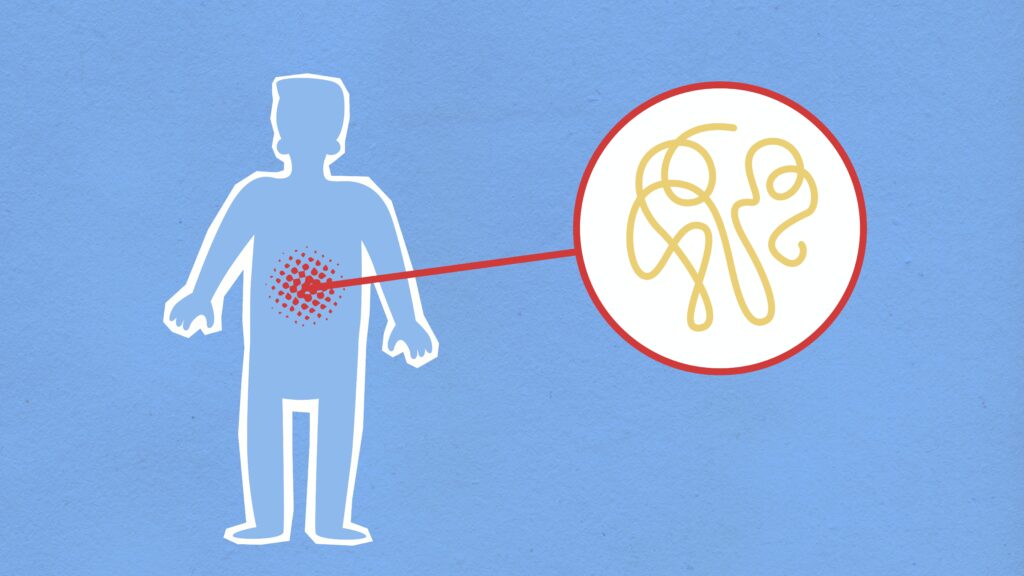
Rehydration solutions
Recipe from the World Health Organization (WHO)
Mix 1 liter of sterile water, 6 tbsp. coffee (= tea) of sugar and 1 tbsp. coffee (= tea) of salt.
Another recipe: mix 360 ml of unsweetened orange juice with 600 ml of cooled boiled water, added with 1/2 tsp. coffee (= tea) of table salt.
Storage: these solutions can be stored for 12 hours at room temperature and 24 hours in the refrigerator.
Medications
It is best not to treat diarrhea, even if it causes discomfort. Consult a physician before taking any diarrhea medication, even those available over the counter. Some products prevent the body from eliminating the infection: they are then of no help. In addition, if blood is in the stool or if strong abdominal cramps are felt, it is imperative to consult a doctor.
Some medications may be convenient for travelers who have long bus or car journeys, or who do not have easy access to medical services. Antiperistaltic drugs stop diarrhea by slowing bowel movements (for example, loperamide, such as Imodium® or Diarr-Eze®). Others decrease the secretion of water in the intestines (for example, bismuth salicylate, or Pepto-Bismol®, which also acts as an antacid).
If necessary, antibiotics can overcome diarrhea caused by bacteria or a parasite.
| Remark. Diarrhea can interfere with the absorption of medicines, which can make them less effective. Consult a doctor if in doubt. |

